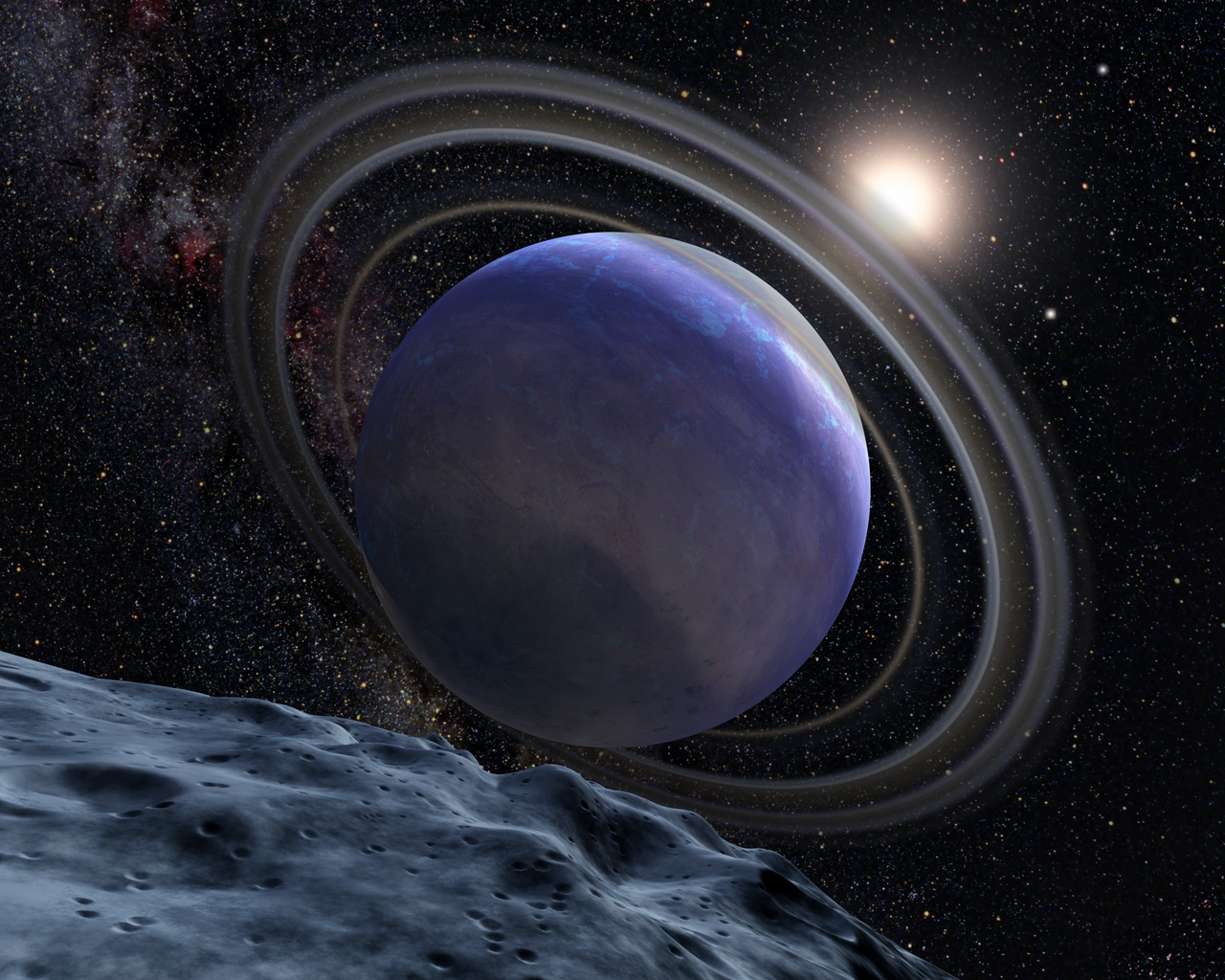What if I told you that everything you knew about the solar system was wrong? Well thats a bit extreme, but what if I told you that there may be another gigantic beast of a planet sitting on the outer extremes of the solar system, you would be skeptical, as would I. Skepticality is important in times like these where unbelievable claims can be thrown out and received just because they are sensational, just look back in the past at the the cold fusion scandal (here's a bit of a history if it has escaped your memory) sensational claims get a sensational amount of press.
But I digress, a few researchers at the University of Louisiana at Lafayette have announced recently that there may be a huge planet sitting out in the Oort Cloud. For those unfamiliar with the districts of our fine solar system, the Oort Cloud is a hypothetical sphere of dust and ice balls that surrounds the whole system and is very very far away. It has been cited as the source of comets outside the much closer Kuiper Belt. The idea of a planet sitting far out in those reaches is not new, we find small Pluto sized planets out there all the time now, and the idea of a Neptune sized planet is not that absurd, but a planet up to four times the mass of Jupiter, you have to be kidding me.
If Tyche (article) really does exist it has some serious ramifications for the concepts of solar system formation and may explain some mysteries of the solar system. It would also be sweet addition to the solar menagerie, a possible target for the space program many generations in the future, but mind you this is all if it exists.
What really irks me about all of this though is the absurd hype being used. Gizmodo, a fairly respectable entity, used an altered version of this image:
Though they mention at the bottom of the article that it is an altered image and the comparison is off, its way at the bottom in gray italics as though they don't really want to make light of that. Other articles don't even mention that there is a significant chance that their data is off or they are interpreting it wrong, they just hastily let the reader assume that it is true.
We will know sometime in the next few years if this planet exists, but for now, I am not keeping my hopes up.
May The Stars Shine In Your Skies!


Interesting post--you want the community to be more up front about the uncertainty inherent in this kind of study. It occurs to me they are coming up against some difficult realities in this sense--they are facing funding cuts for this kind of work, have to justify its importance, and if they clearly communicate the uncertainty they fear they may be taken less seriously. Though that may be the way to build credibility, as you point out.
ReplyDeleteNice links, good image, good voice here.